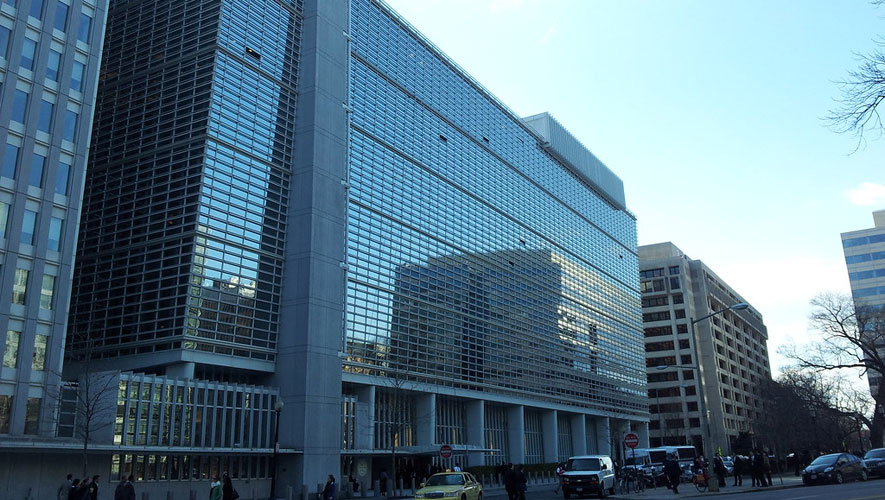Earlier this week, the World Bank launched a comprehensive report offering policy recommendations for sustainable economic growth. Weighing in at 173 pages, “Cambodia’s Future Jobs: Linking to the Economy of Tomorrow” is an exhaustive analysis of policy measures and strategies that could be employed to maintain Cambodia’s much-lauded gross domestic product (GDP) growth.
For the latest Cambodian Business news, visit Khmer Times Business
The problem, stems not from the report itself – authors Wendy Cunningham and Claire Hollweg offer astute observations and insights that merit serious consideration from the Royal Government of Cambodia. Nor is there a problem on the government’s side – the Ministry of Labour and Vocational Training (MoLVT) has stated it agrees with the findings of the report.
‘Skills gap’
The problem is the fact that the issues raised and the means of addressing them have been raised time and time again in Cambodia. The term “skills gap” has featured 20 times – more than once most months since February – in this publication alone.
In April this year, Sarah Zhou Yong, then-resident representative for the International Monetary Fund (IMF) spoke to Capital Cambodia on the matter.
“Looking ahead, there is still ample scope to upgrade the quality of Cambodia’s existing export basket. The country should introduce higher value-added export products, not only in manufacturing but also in agriculture, to expand to other export markets,” she is reported as saying.
Four strategies
These words are almost identical to those being issued as policy advice half a year later and Yong wasn’t even the first to utter them. The IMF, the World Bank and a long list of developmental partners have all been giving the same advice for more than a decade.
“The report identifies four strategies for better future jobs in Cambodia,” Hollweg stated at the World Bank’s report launch on Tuesday.
“First, diversifying into higher value-added exports. Second, remove barriers to growth for domestically owned firms and household enterprises. Third, foster links between foreign firms, domestic firms and family businesses. Fourth, upskill the workforce to compete with global peers for quality jobs,” she explained.
Quality of jobs
The World Bank report identifies quality of jobs as more of an issue than quantity – pointing to Cambodia’s notably high workforce participation, which currently stands at 80 percent of the working-age population.
“Only 5 percent of jobs in Cambodia are in occupations that require skilled workers,” notes Cunningham, who goes on to say that some 60 to 70 percent of workers do not enjoy corporate benefits, minimum wage laws, mandated vacation or other protections, because they are employed in low-skilled family businesses or household enterprises.
More than half of all employed Cambodians – an estimated 4.2 million – work in household enterprises, which offer limited economic benefits, limited productivity and even more limited skills. In the face of Industry 4.0, the demand for this calibre of worker is set to drop dramatically and the need for better jobs will become painfully apparent in places such as Cambodia. Generating these higher-value jobs requires a workforce capable of doing them but, as the report points out, the average worker is getting by with just 6.3 years of education and has few opportunities to build on his or her skills.
It goes on to warn that simply moving from low-skilled agriculture to low-skilled services and manufacturing may not be enough to establish Cambodia as a middle-income status country in the next generation. As many as 77.5 percent of Cambodia’s jobs were in agriculture in 1995. This had fallen to 40.1 percent by 2017 and now accounts for just 19 percent of GDP, while the industrial sector (including construction) now makes up 31 percent of GDP and 25.5 percent of the workforce. It was remarkable progress at the time, but another significant shift is necessary for Cambodia to build on its recent economic gains.
Workforce for the future
Again, these issues are not new – the process of globalisation has been further intertwining the economic fates of nations for decades and the Hun Sen administration has been accused of failing to effectively produce a workforce ready for a future that is now at our doorstep.
Offering solutions, Hollweg goes on to note that those 4.2 million employed in household enterprises and small and medium enterprises (SMEs) need to be capitalised on. This will require intervention in order to remove barriers to growth, the report recommends.
With limited access to finance supposedly being addressed by the recent SME Bank – but only for certain sectors – other issues include, once again, limited skills, limited entrepreneurship, limited business ecosystems and a lack of access to information.
This, the report argues, is compounded by the lack of interaction between these domestically-owned SMEs and the FDI-funded foreign companies, which, the World Bank claims create more jobs per capita than domestic firms, despite 90 percent of all businesses being locally-owned SMEs. In fact, where domestic companies create, on average, eight jobs per company, foreign-owned companies create an average of 124 jobs per company.
At the report launch on Tuesday, Kemvichet Long – the deputy director general of the Ministry of Commerce – admitted that the nation’s workforce needs to be more ready to absorb disruption, warning that “we will be left behind” if the Kingdom’s education and vocational training programmes are not drastically improved.
Phuong Viseth, deputy director general of the MoLVT, agreed, noting 12 percent of the current workforce have no education and just 6 percent have completed a technical or vocational education programme.
While accepting the problem may be the first step, it is far from the last and while Prime Minister Hun Sen is travelling about Asean accepting prizes for good governance, he is being accused of condemning the Kingdom to an uphill battle by failing to address the issues of skills and diversification.
Critics argue the World Bank’s report needs to be more than a reflection of where Cambodia’s workforce is and should go: it is a warning worth listening to, like all of those that came before it.




